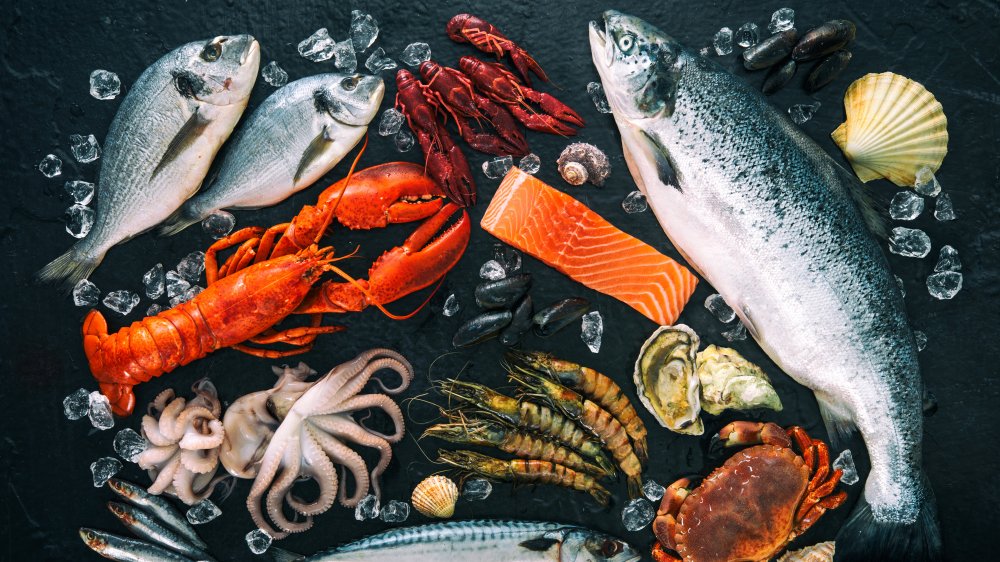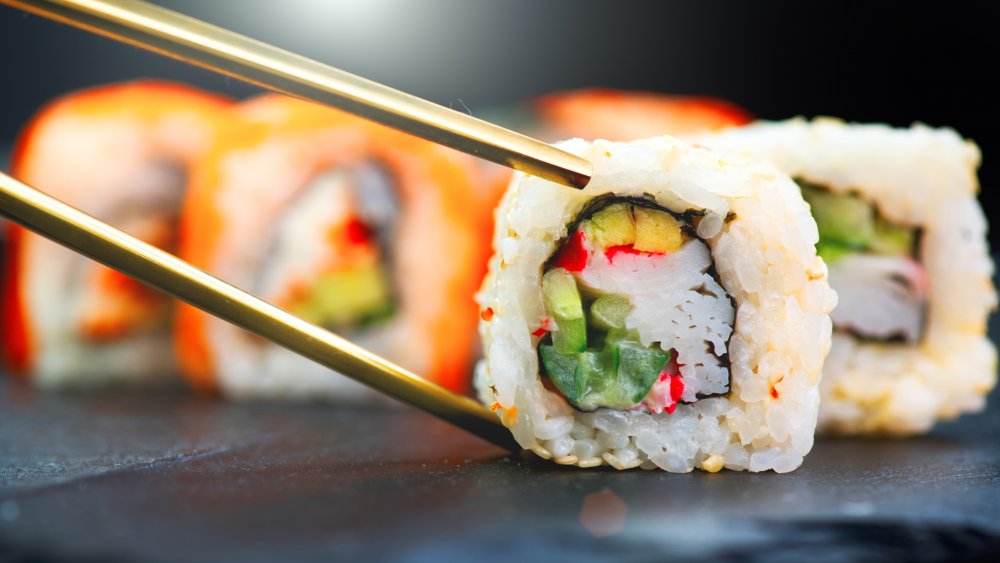Sneaky Ways Seafood Restaurants Are Scamming You
If you give a man a fish, he'll eat for a day. If you teach a man to catch fraud at seafood restaurants, he might not eat out for the rest of his life. And if you get caught committing fraud, you might receive a life sentence. Such was the case for Apichart Bowornbancharak and Prapassorn Bowornbancha, who owned the Laemgate Infinite seafood restaurant in Thailand. BBC News reports that 2020, the duplicitous pair was sentenced to 1,446 years behind bars after being convicted of 723 counts of fraud. They reeled in customers by offering vouchers for highly discounted meals. After patrons took the bait, the price switched to something much higher.
As you may have guessed, the owners won't actually spend the next millennium in prison. Their sentence was sliced in half, and Thai law caps the amount of time one can serve for defrauding the public at 20 years. You might think that's an extreme case. There are plenty of other restaurants in the seafood business, after all, and many of them are an ocean away from Thailand. Unfortunately, plenty of those restaurants are also looking to catfish you, and not in a tasty way.
There's plenty of fake fish in the seafood restaurant
When a restaurant slaps a slab of sauce-slathered flesh onto your plate, how do you know what it is? Unless you're an expert on cooked carcasses, you probably base your assessment on what the menu says. Unfortunately, according to CBS News, a 2019 investigation by the advocacy group Oceana concluded that one-third of U.S. businesses mislabel their fish. This was based on a sample of 449 restaurants, grocery stores, and small markets. A huge part of what makes this so easy to do is that the U.S. imports the overwhelming majority of its seafood — 90 percent, notes Oceana — but tracks almost none of it once it enters the country.
How Stuff Works observes that "less than 1 percent of all imported fish is inspected specifically for fraud," partly part because National Oceanic and Atmospheric Administration (NOAA) is underfunded and understaffed for the task. With so little oversight, it's hard to see when a restaurant replaces pricey fish with a cheaper alternative. A 2017 study conducted by UCLA and Loyola Marymount University analyzed the DNA of fish at 26 sushi restaurants based in Los Angeles and found that a whopping 47 percent of the sushi had been mislabeled. As UCLA professor Paul Barber bluntly put it, "Half of what we're buying isn't what we think it is."

